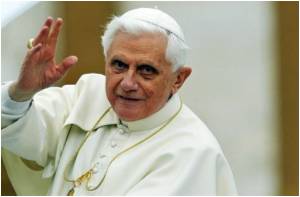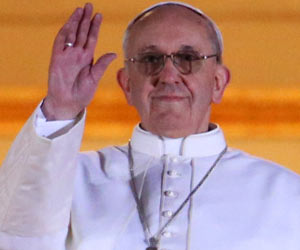Polish Catholics are hoping that Benedict XVI's successor will be a conservative, but a more reformist one as the Vatican prepares for the election of a new pontiff.

"The Church in Poland would prefer a pope who carries on the legacy of his two predecessors, John Paul II and Benedict XVI, because it is conservative and fears change," Pawel Boryszewski, a Warsaw-based religious sociologist, told AFP.
A reformist pope however "could perhaps push the Polish Church to fulfil its pastoral mission, instead of focusing just on institutional aspects", he observed.
With over 90 percent of the country's 38.2 million citizens declaring themselves Catholic, Poland is among the most devout countries in Europe.
Yet "youngsters, people who are well educated, urban dwellers as well as women are beginning to turn away from the Church", Boryszewski said.
Many are doing so in frustration over thorny issues within the Church at large including the wave of paedophilia scandals abroad, though few cases have been reported at home.
Advertisement
Tadeusz Bartos was a Dominican friar for 20 years before retiring in 2007. Today, he lives with a woman and believes Catholic priests should be allowed to marry.
Advertisement
"It's at the root of the scandals at the Vatican. The priests live together 24/7 and all they do is plot schemes against one another. If they had a family life, their attention would be focused on other things," he added.
Having a family life is also still a dream for many gay couples in Poland, where neither the state nor the Church recognise same-sex partnerships.
While Britain and France move to legalise gay marriage, in January Polish lawmakers voted down three bills on civil unions for unmarried couples whether gay or straight.
One of the bills, however, did have the support of Polish Prime Minister Donald Tusk and was welcomed as a move in the right direction by Robert Biedron, Poland's only openly gay member of parliament.
With the Polish constitution defining marriage as a relationship between a man and woman, the drafts did not include the right for gays to marry or adopt. In July, parliament rejected four similar draft laws.
While a survey in February found that 69 percent of Poles oppose gay marriage and adoption, a majority 55 percent said they backed civil unions for both gay and straight couples.
Members of "Faith and Rainbow", a Warsaw-based Christian prayer group for homosexuals, have high hopes the next pope will be a moderniser who creates a more gay-friendly Church.
"The Church still regards gay people as being mentally ill. Often, it encourages them to seek treatment. For us, it is frustrating that the Church which asks for moral behaviour does not understand the essence of our sexuality," group member Agnieszka Barszcz said.
While the issue of homosexuality is up for debate, two decades after the fall of communism, the issue of abortion still remains largely taboo.
Abortion was legal for over 40 years under the Communist regime, but since 1997 Poland has taken a tough stance on the issue -- under the Church's powerful influence.
Terminations are allowed only in the case of severe birth defects, rape, incest or if pregnancy threatens a woman's life. Pro-choice advocates claim this has led to a vast number of risky and pricey backroom abortions.
In the heart of the capital Warsaw, Franciscan nuns have created a so-called "Window of Life" where women who do not want to be mothers can discreetly and anonymously abandon their newborns who are then taken into care.
"The fifth commandment tells us clearly: 'Do not kill'. It is an inviolable right, which comes from God, and no one, not even the pope, has the right of life or death over anyone, especially a child," Sister Wanda Kmiecik, one of the nuns running the project, told AFP.
Source-AFP









